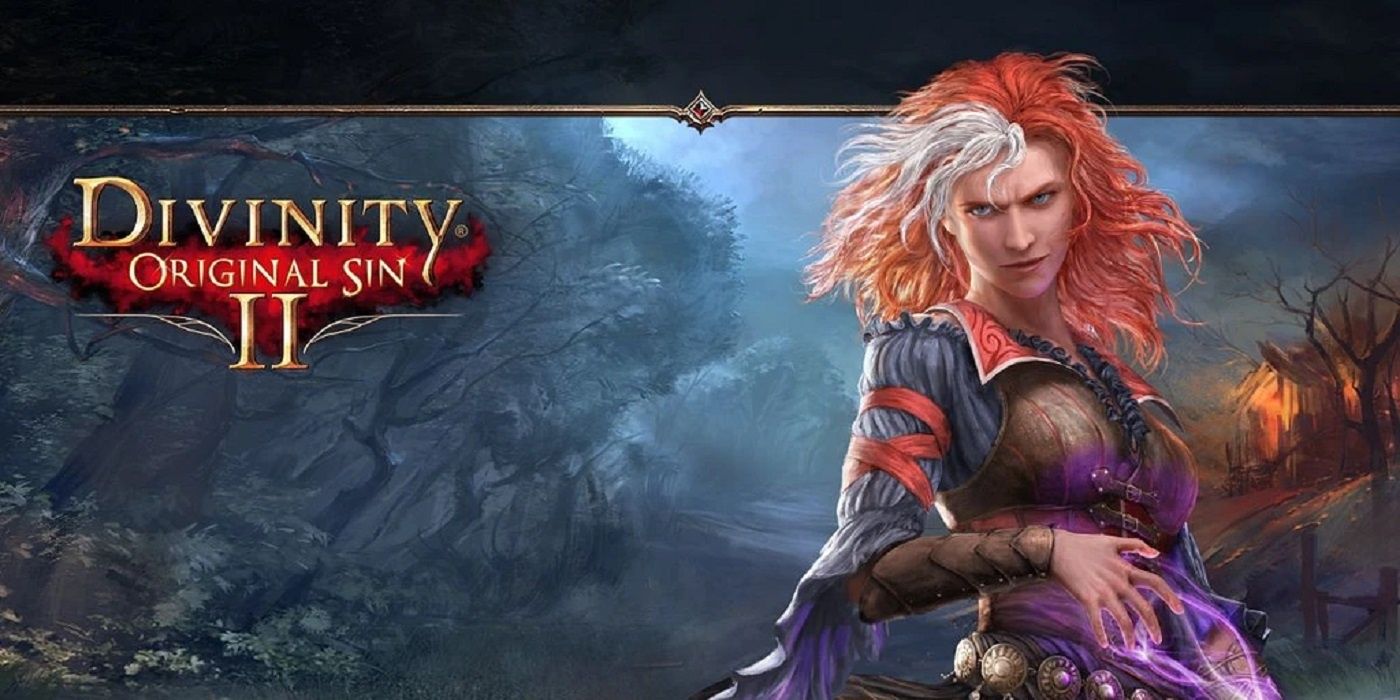
Fans of Larian Studios' Divinity: Original Sin 2 know that the acclaimed RPG provides quite a lot of options for players - especially in combat. After all, the game allows players to control almost all aspects of the game environment. Moreover, the game's intuitive spellcasting system allows players to mix and match spells (called Skills) to fit their needs. As such, new and old players alike may find themselves intrigued when building a magic-user for the game.
RELATED: 10 D&D Adventures To Play If You Loved Divinity: Original Sin 2
For instance, players can create characters that focus on summoning minions. Meanwhile, other characters can wield both melee weapons and certain combat-oriented spells. However, with the numerous Skill Schools available, just how should a player approach spellcaster characters? Moreover, with the many builds players can potentially create, how should they approach creating efficient spellcasters?
Updated March 8th, 2021 by Rhenn Taguiam: With Baldur's Gate 3 serving as an exciting look into how Larian Studios will make a D&D game with Original Sin 2's gameplay, fans of Divinity: Original Sin 2 might enjoy more tips on tinkering with their mages in unexpected ways in their Original Sin 2 playthroughs.
15 Build A Rotation Based On Interactions
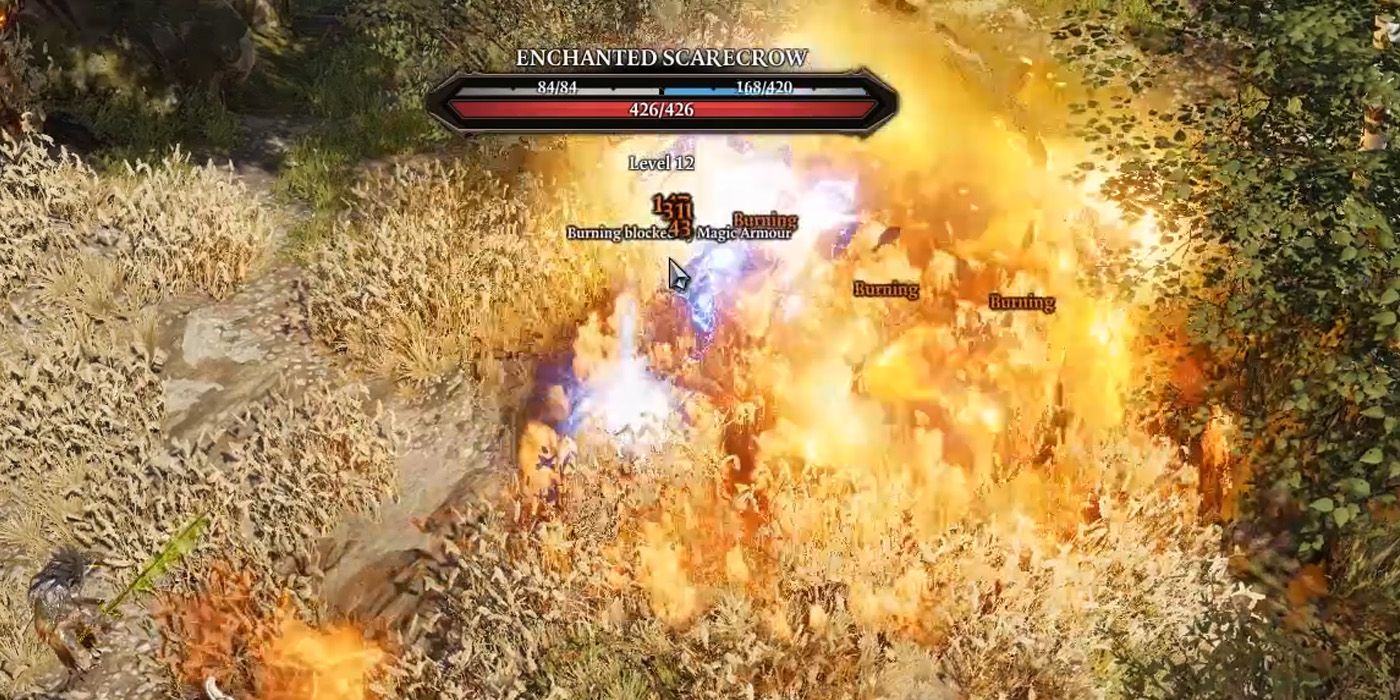
As with most MMOs, magic users often devastate battlefields with their immense control over AOE spells. Sadly, in Original Sin 2, Action Point (AP) restrictions mean Spellcasters can’t just dish out one powerful spell after the other. However, practical Spellcasters can still meet mean damage numbers with the right rotation.
For instance, players should always consider how their Skills interact whenever they cast them every turn. For example, Geomancer and Pyrokinetic Skills always work together as oil can make and enhance fire. Likewise, Hydrosophist and Aerotheurge Skills work hand-in-hand as water can facilitate the spread of lightning. In hindsight, this also means that players should consider how to maximize the environment to benefit their spells. For instance, why waste AP on other Schools when a puddle of oil is just waiting for a good ol’ Pyrokinetic Skill?
14 Get The Right Gear
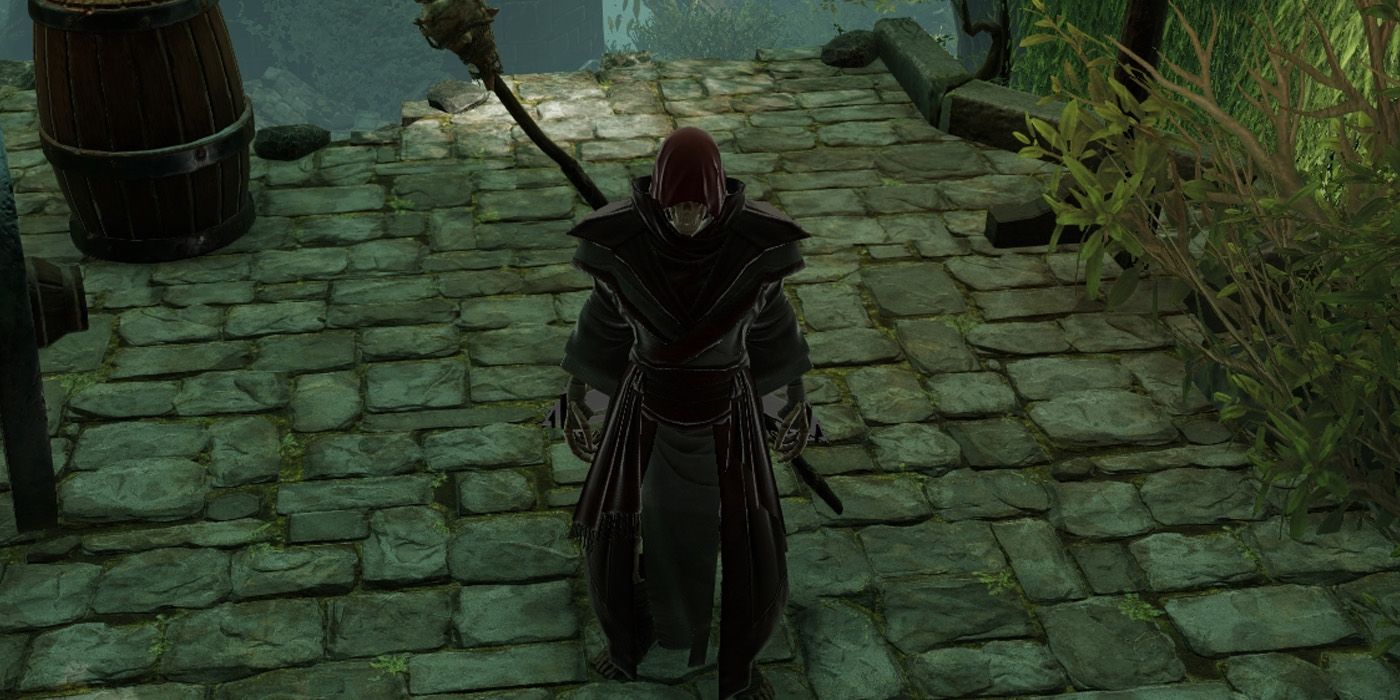
Theoretically, any character can wield any weapon and wear any armor provided they have the right Attribute points. However, some combat roles depend on specific Attributes to maximize their damage output and performance. For instance, players know that Spellcasters need their Intelligence to maximize their magic-based damage and Magical Armor. In turn, players need to equip their Spellcasters with gear that raises Intelligence as much as possible. With that in mind, all’s good, right?
Well, players need to ensure that their Spellcasters also get gear that enables them to fulfill their role on the battlefield. For instance, players who can’t invest in a Skill School should probably get a weapon that enables their Spellcaster to use Skills from that School even without points. For instance, a Pyrokinetic-focused Spellcaster can wear a wand with a Geomancer Skill or the Gloves of Teleportation for the free Teleportation Skill. That way, a Spellcaster can effectively enhance their arsenal without branching out of their builds of choice.
13 Consider Distance
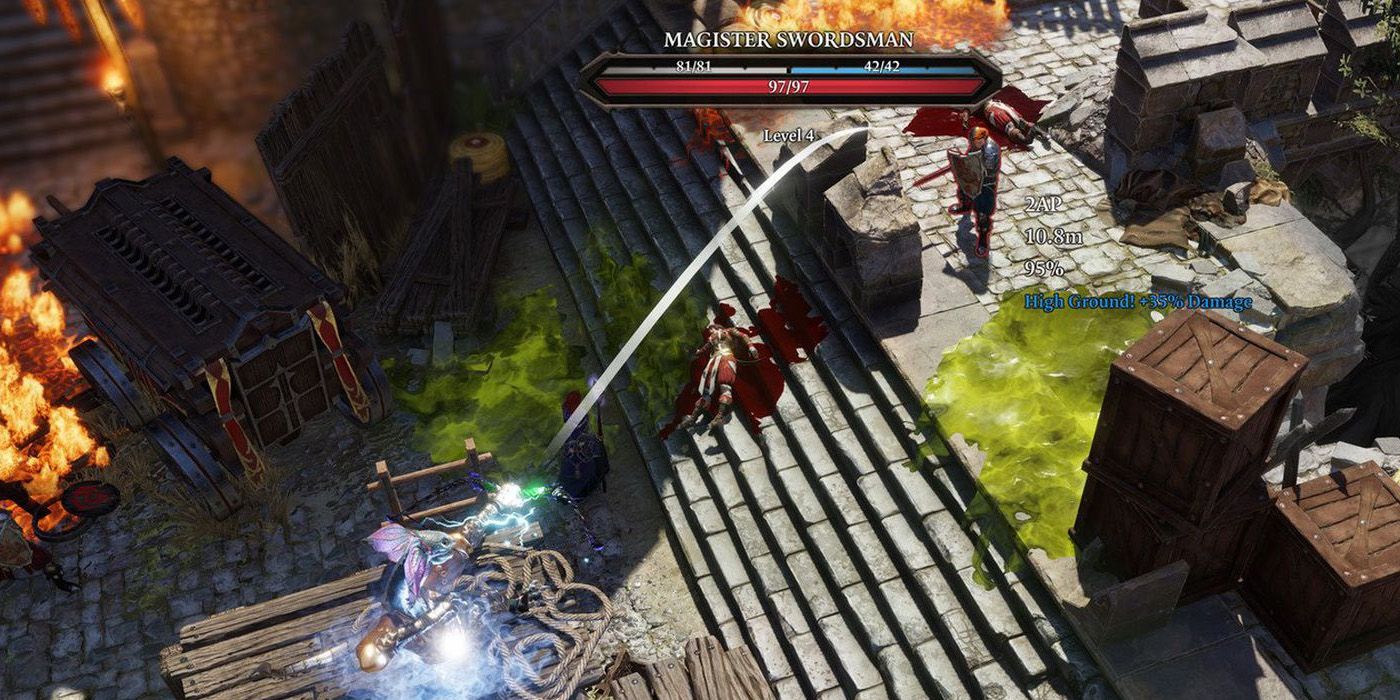
Due to the fragile nature of Spellcasters, they should always consider casting their Skills from a safe distance. Ideally, the further they are, the harder it takes for enemies to hit them. For instance, a hard-hitting melee boss would have to spend a lot of AP just to travel near the Spellcaster to land a hit. Likewise, even some ranged enemies would need to waste AP just to get a clear shot of the Spellcaster.
Ideally, Spellcasters should get the Far Out Man Talent to further increase their Skill range by 2-meters. This is a huge leap of distance, as this essentially allows Spellcasters to be almost out of combat range from all enemies in the field. Likewise, this gives Spellcasters easy access to exits should they need to resupply or reposition themselves in battle. Remember, Spellcasters rely on their intellect and wits to outsmart the enemies - and being able to attack from a distance immediately expands their battle options.
12 Maximize The Turn
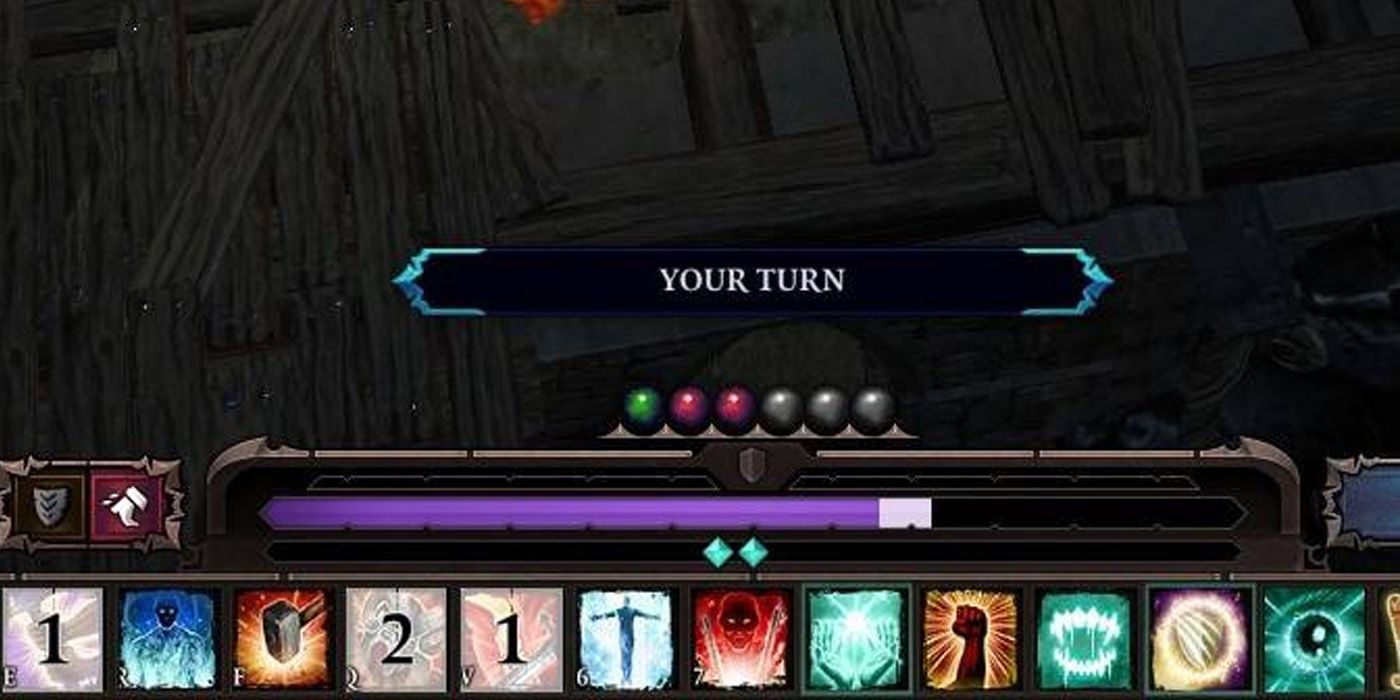
No matter how powerful a Spellcaster is, their AP immediately limits the kinds of things they could do in a single turn. Remember, most characters start with only 4AP every turn. As such, Spellcasters need to think hard about whether a single high-AP Skill would be worth the cost compared to multiple low-AP Skills in their turn. Ideally, Spellcasters should wait until they have their full set of six (6) AP to spend on a multitude of Skills.
Likewise, players can always equip their Spellcasters with AP-boosting Skills. These include the Lone Wolf Talent capable of adding +2 Maximum AP while immediately starting with 6AP every turn. Additionally, the Glass Cannon Talent always lets a character start with Maximum AP at the cost of their Armor not protecting them from statuses.
11 Get Help
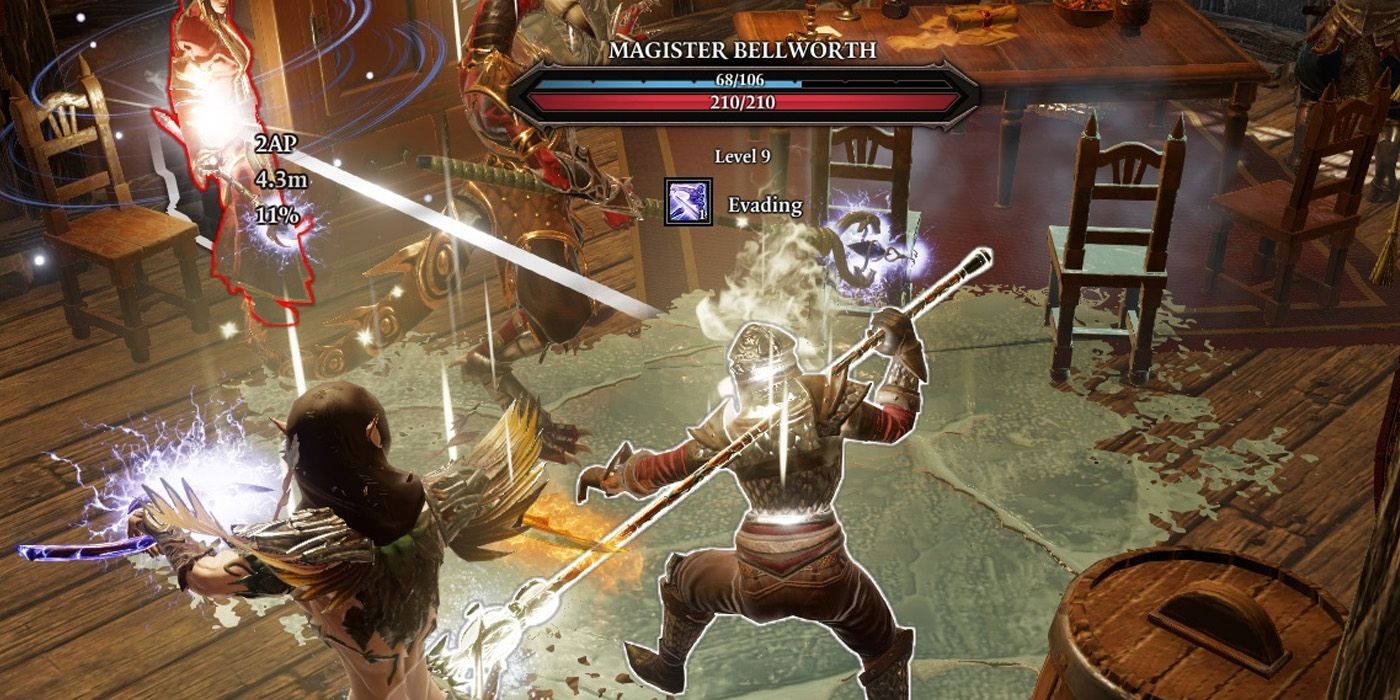
Despite their sheer firepower, Spellcasters in Original Sin 2 tend to have extremely weak physical defenses. Unless they’re facing other Spellcasters, a mean whack with a sword can easily tear through their Physical Armor and their Vitality. In turn, Spellcasters should always work in tandem with other melee combatants in the party. Aside from keeping them safe, melee combatants such as Warrior-types and Rogue-types should synergize their combat strategies with the Spellcaster to make the most out of their Skills.
RELATED: Baldur's Gate 3: 10 Must-Try Party Setups For Unique Playthroughs
For instance, Spellcasters can always serve as the last-in, first-out of a combat encounter. Thanks to their distance control, they can dish out powerful AOEs from a distance and then leave combat. That way, the melee combatants can finish the battle without the Spellcaster risking their safety. Likewise, the fast-paced healing of non-combat exploration can help Spellcasters regenerate their CDs, get back to battle, and exit just as quickly.
10 Maximize Spells With Intelligence
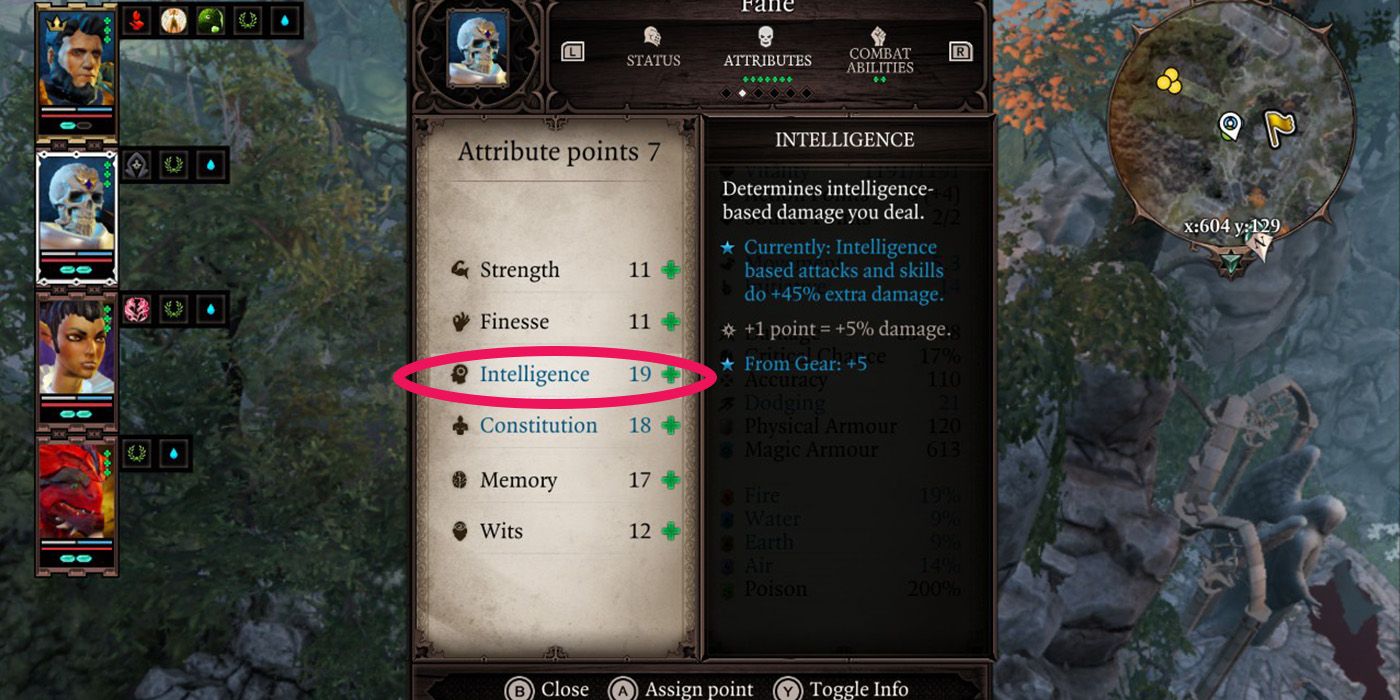
Building the perfect spellcaster begins as soon as players commence character creation. Before proceeding with anything specific, mages should take note of some priority Attributes to focus on. However, of all these Attributes, Intelligence fits spellcasters perfectly. In essence, Intelligence improves the potency of magical spells and effects, as well as wands and staffs.
For specifics, every Intelligence point increases Scroll and Spell damage by 5-percent. As such, just having 20 Intelligence gives spellcasters a massive 100-percent damage increase when casting spells. This factor also explains why Intelligence-based characters seem to dominate the battlefield when they use Pyrokinetic, Geomancer, Aerotheurge, and Necromancer Skills.
9 Never Forget Memory
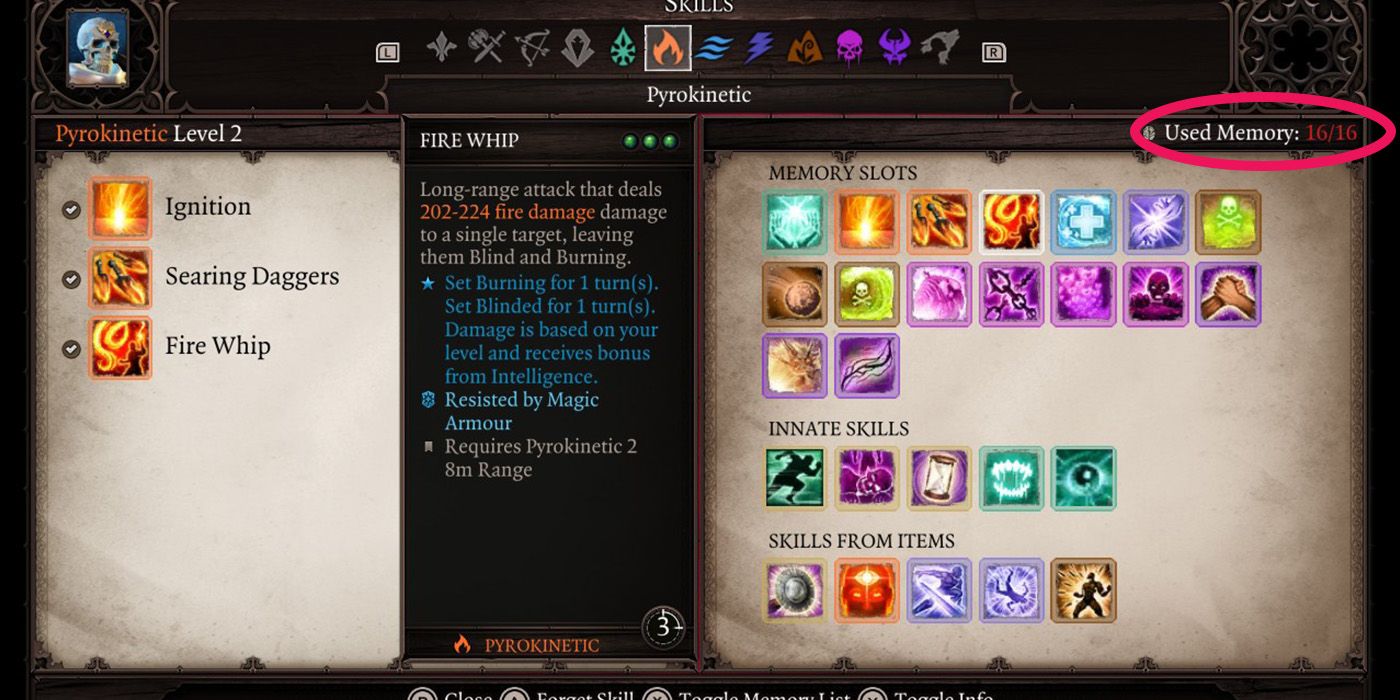
The best spellcasting builds become useless if they don't have the right Skills. As such, Memory allows characters to "equip" Skills they know, according to how many Memory slots they have. Numbers-wise, each Memory point gives players one Memory slot. Moreover, players get another Memory slot when they reach an even-numbered level (or every two levels). Simple, right?
However, players should keep their Memory point conservation in check. Remember, more potent Skills such as Summon Artillery Plant (Geomancer), Mass Cleanse Wounds (Hydrosophist), Black Shroud (Necromancer) already occupy two Memory slots.
Moreover, some of the most powerful Skills such as Blood Storm (Necromancer), Thunderstorm (Aerotheurge), and Meteor Shower (Pyrokinetic) occupy three Memory slots.
8 Wits Add An Extra Kick
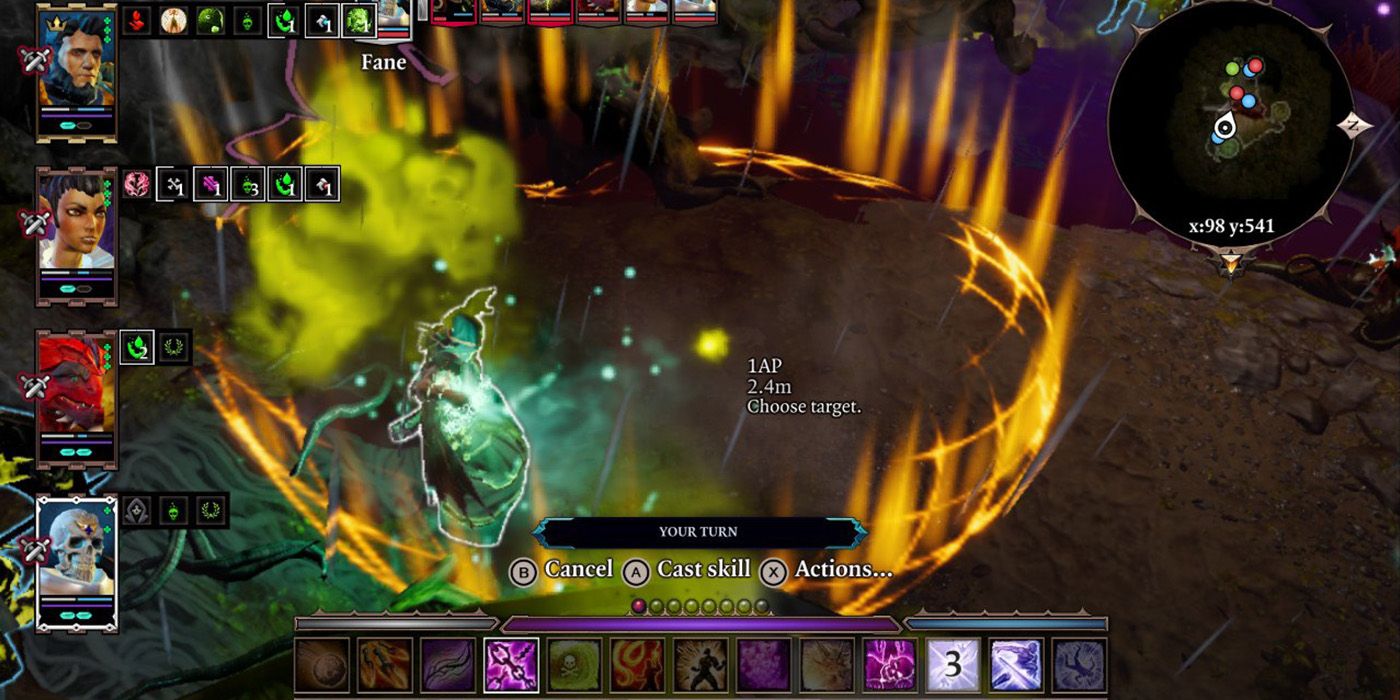
Players who want to optimize their spellcasters would want to maximize their opportunities in combat. Thanks to Wits, a spellcaster can act faster, spot special parts of the environment, and, most importantly for min-maxers, increase critical chance. Numbers-wise, each Wits point increases Critical Chance by 1-percent and adds one Initiative. However, these simple additions reap massive benefits in the long-term.
Remember, an Attribute can have a maximum of 40 points - meaning, min-maxers can create a mage with a whopping +40-percent Critical Chance. Moreover, the more Initiative points a character has, the earlier they get to roll in combat. As RTS fans know, the first move can often dictate the flow of the battle.
7 Constitution Is Wealth, Probably
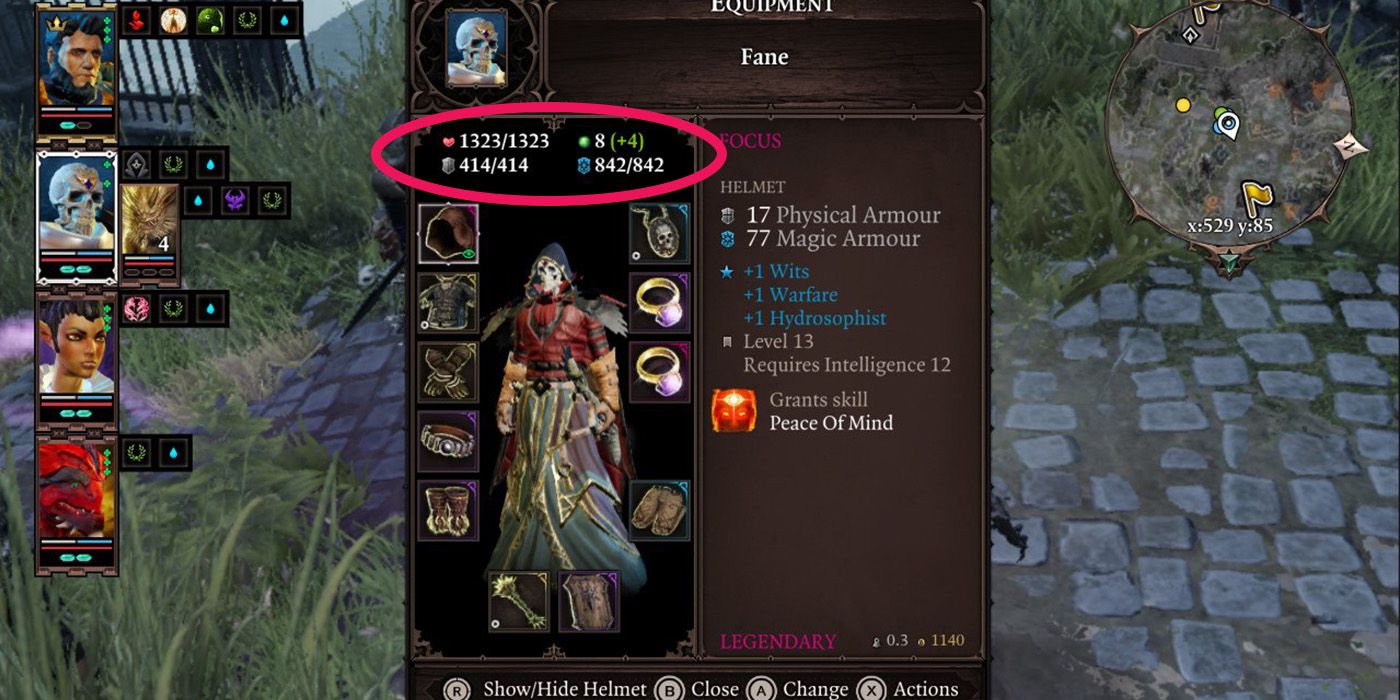
Mages who prioritize their spells tend to have weak bodies, making them extremely vulnerable. As such, optimal spellcaster builds often take Constitution into consideration. In essence, each Constitution point grants players 7-percent more Vitality (HP). In turn, this factor implies Constitution works best with melee-based fighters and tanks.
RELATED: Divinity: Original Sin 2 – 10 Most Underrated Skills In The Game
Players confident that their spellcaster has backup should probably put fewer points in Constitution and more in Wits. Ideally, the spellcaster's speed should compensate for their low health. After all, higher Initiative enables spellcasters to reposition in the map much earlier, set up defenses more efficiently, and attack enemies much faster.
6 Talents Establish Builds
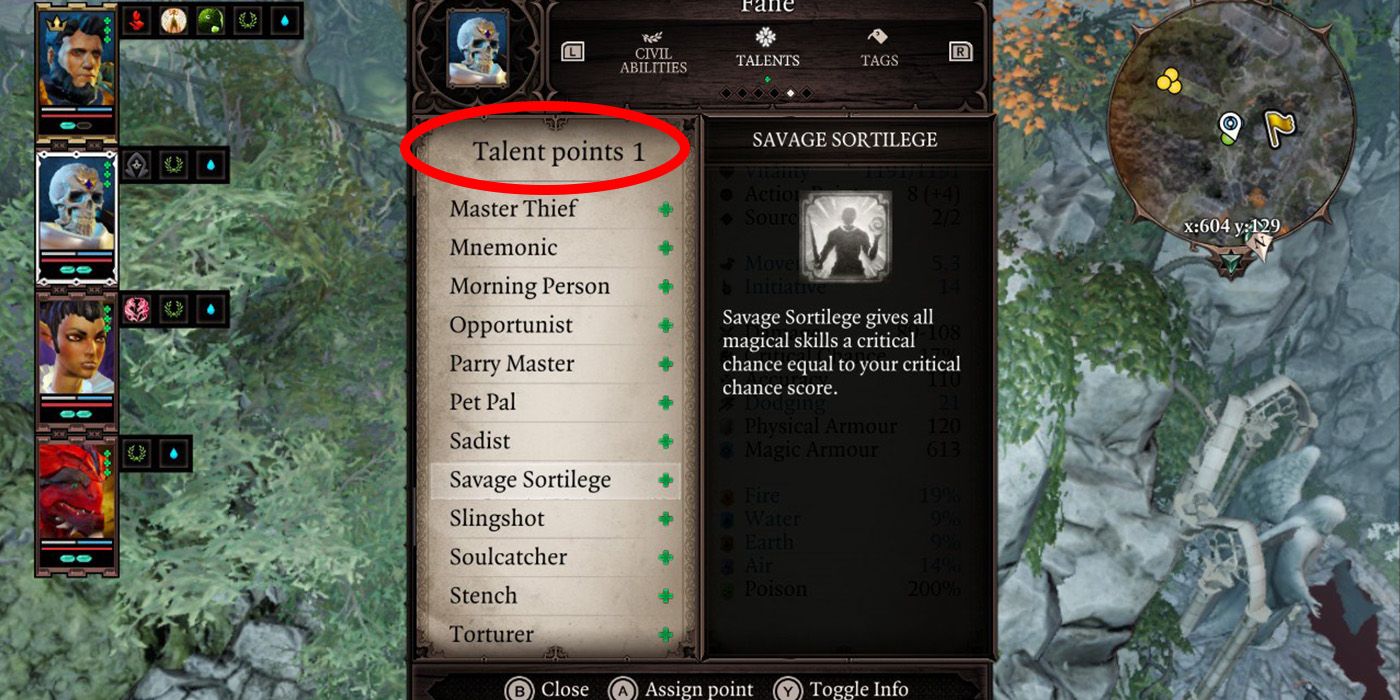
Aside from Skill Schools and Attributes, Talents further diversify a character's skillset in order to make them more efficient in combat. However, as players might notice, some Talents seem perfect for a spellcaster. For example, Mnemonic grants a much-needed 3-point boost in Memory, which can give players extra points to use for Attributes like Intelligence or Wits.
In turn, Savage Sortilege maximizes a spellcaster's Wits. This Talent equates a magic skill's crit chance equal to the character's Critical Chance Score. Additionally, Far Out Man's 2-meter Skill range boost further capitalizes on a spellcaster's distance.
Interestingly, the right Talent can also maximize particular mage builds. For instance, Hothead gives a 10-percent boost to Critical Chance and Accuracy at full Vitality, perfect for Necromancer builds. Moreover, debuff builds get increased duration with Torturer, while element-based builds get AP reduction perks with Elemental Affinity.
5 Get Elemental
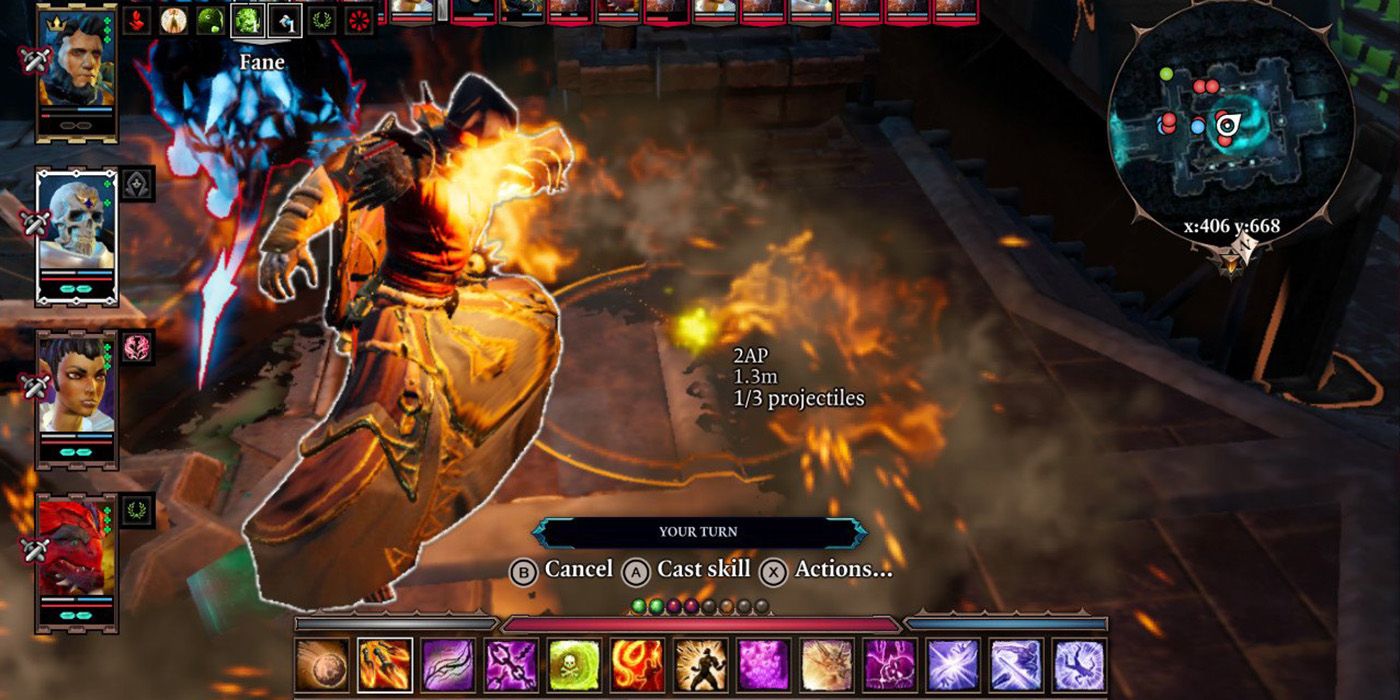
Spellcasters will realize the potential of combining surfaces and elemental Skills early on in the game. As such, it's extremely easy to build an efficient element-based build for mages. In this case, mages should focus on creating surfaces that work together - such as oil and fire, poison and fire, and water and electricity. As such, Skills such as Fossil Strike (Geomancer) and Fireball (Pyrokinetic), and Chain Lightning (Aerotheurge) become essential assets. In turn, useful Talents such as Elemental Affinity work great with this build!
Moreover, extra Skills such as Teleportation and Tactical Retreat work with this build for positioning. Lastly, Apotheosis (Polymorph) give spellcasters a chance to go nuclear for two turns!
4 Get Summoning
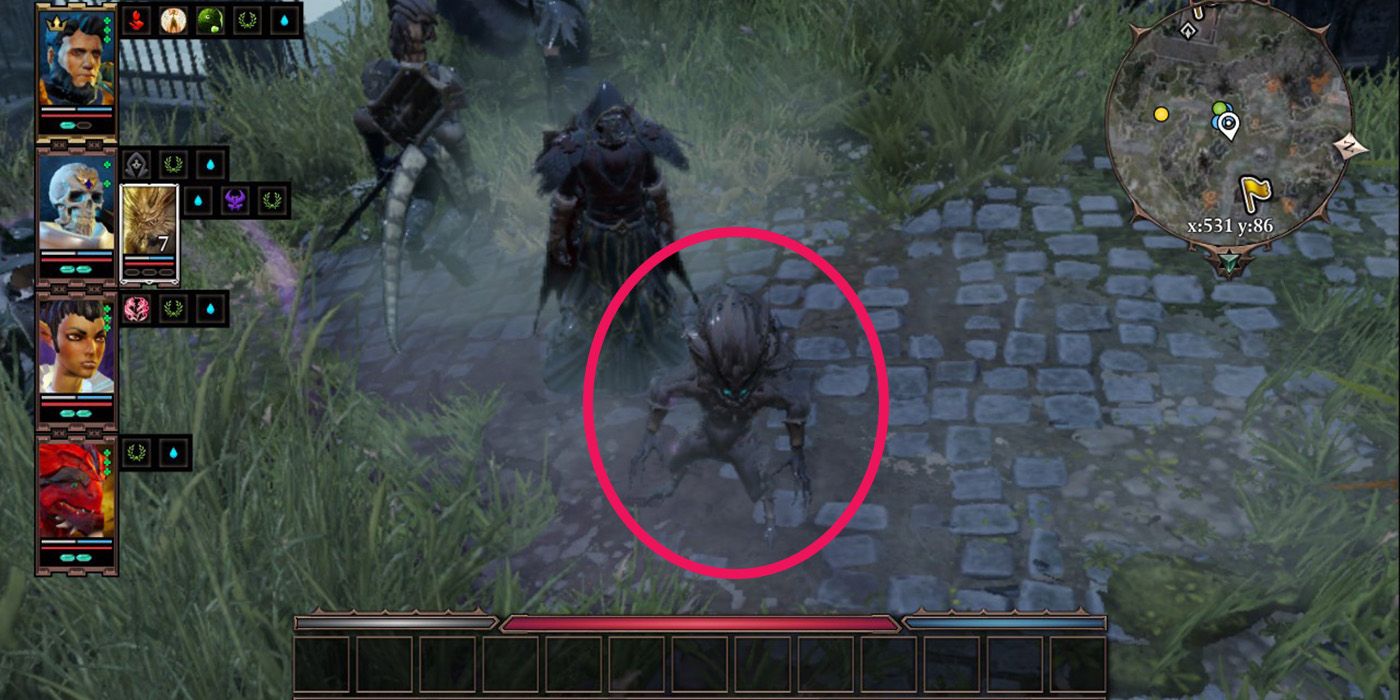
Alternatively, spellcasters who want to employ the help of summons can actually make a Summoning-heavy build. This build relies mostly on element-based Conjure Incarnate as well as the extra support from Elemental Totem in combat. Of course, this build requires spellcasters to get all infusions for summons to boost their capabilities.
In turn, the straightforward nature of this build leaves room open for full support abilities. As such, summoners can get Fortify (Geomancer) and Armour of Frost (Hydrosophist) to boost ally defenses. Meanwhile, Enrage (Warfare), Haste, and Peace of Mind (Pyrokinetic) can provide valuable buffs to the party.
3 Get Tanking
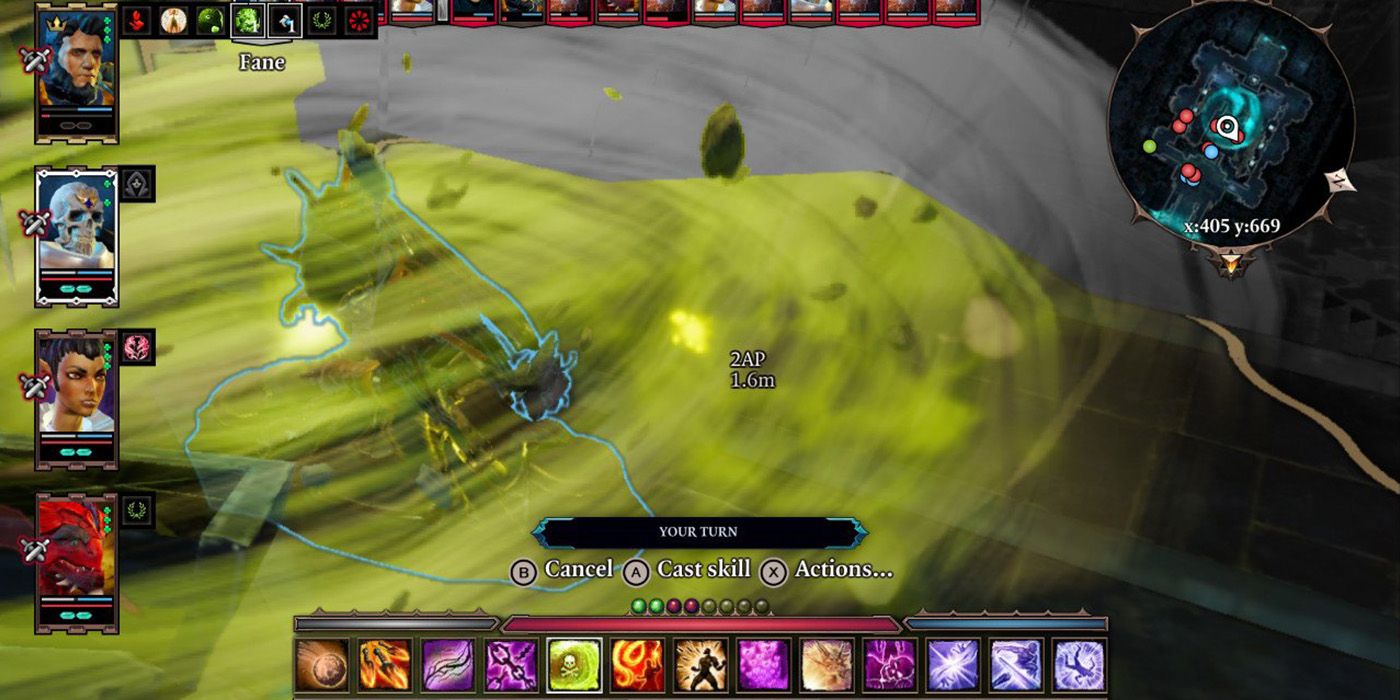
RPG fans know that mages can't tank under any circumstance - except with the right build. In fact, mages can maximize AOE Skills that centers around them to hit opponents that rush towards them. Moreover, with the right defense, spellcasters can lead the battle as a tank. For instance, self-AOE Skills such as Contamination and Poison Wave (Geomancer), as well as Ignition and Supernova (Pyrokinetic) can punish enemies who get too close.
RELATED: Divinity: Original Sin 2 – 10 Must-Have Skills For Beginners
However, this build works best with defensive and evasive Skills such as Uncanny Evasion and Blinding Radiance (Aerotheurge) to make mages virtually invincible for a while!
2 Position Is Essential
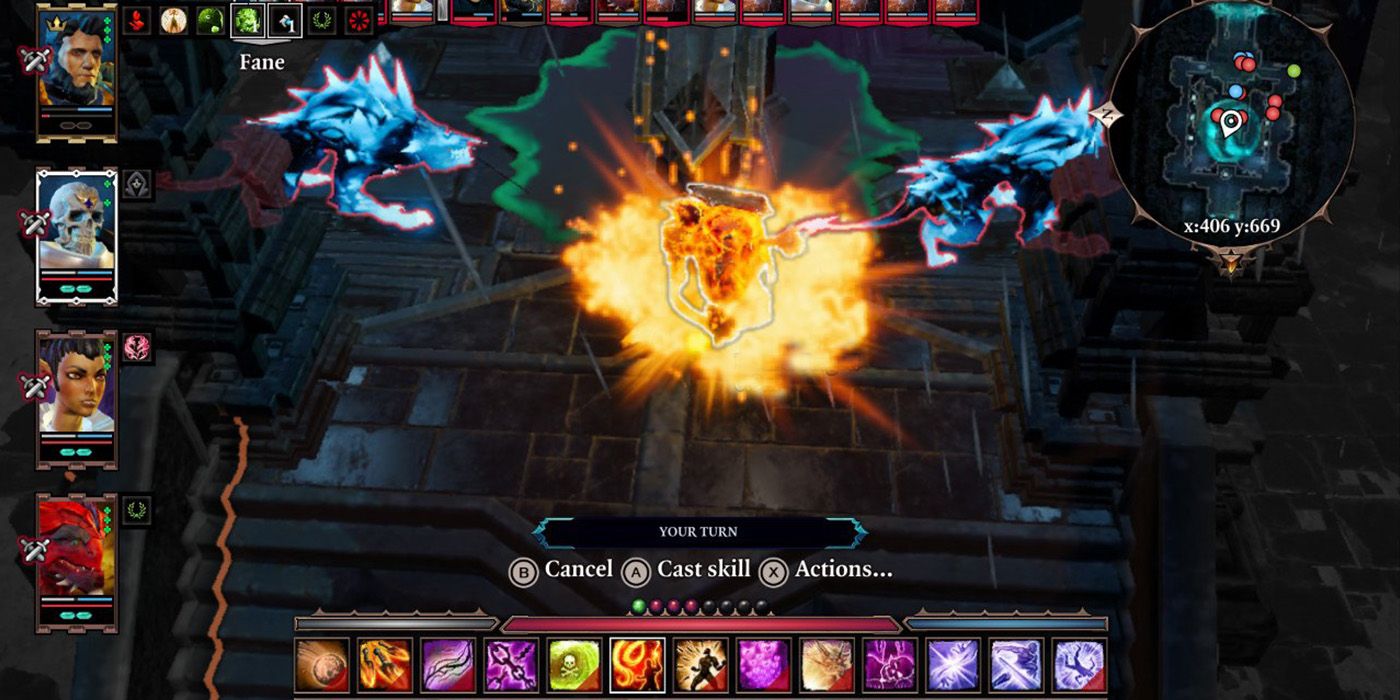
Unlike other builds, spellcasters need the best access to mobility Skills due to their fragile nature. Thankfully, some Skill Schools offer great mobility options perfect for spellcasters who need to reposition themselves in battle.
For instance, Teleportation (Aerotheurge) from another character can get a spellcaster out of trouble. Meanwhile, the spellcaster can use Nether Swap (Aerotheurge) to change places with any creature in range. Moreover, Spread Your Wings (Summoning) grants Flight that ignores surfaces.
Likewise, spellcasters can invest in more martial Skills to give them both mobility and physical attack options. These Skills include Tactical Retreat (Huntsman), Cloak and Dagger (Scoundrel), and Phoenix Dive (Warfare) - all of which provide decent mobility for just two Skill Points. Moreover, just having two Skill Points in any of these martial Schools grants access to decent physical Skills.
1 Consider Going Physical
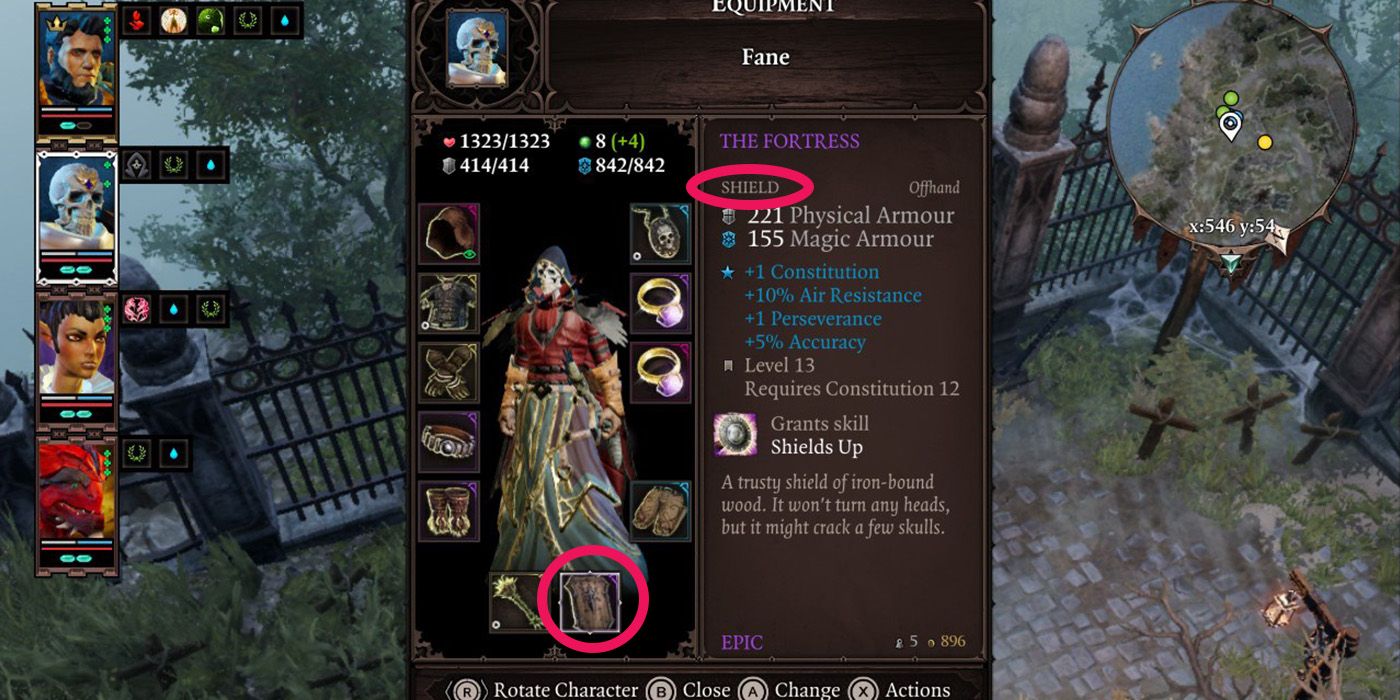
Just because spellcasters specialize in slinging spells doesn't mean they always have to be in the rear guard. Granted, Intelligence-focused builds will give spellcasters more Magic Armor but less Physical Armor and Health. Thankfully, players might want to invest a bit in Constitution to get more HP.
Moreover, while a staff completes the spellcaster "look," the short-ranged staff becomes unideal for the innate long-range nature of the spellcaster. This factor explains why a lot of spellcasters rely on wands, be it one-hand or dual wield. After all, most wands grant extra Skills. Meanwhile, an off-hand Shield can give mages much-needed Physical Armor.
Lastly, spellcasters should consider investing in martial Skill Schools to diversify their attack options. For instance, Huntsman gives bonuses to ranged attacks and attacking from higher ground. Meanwhile, spellcasters with daggers can invest in Scoundrel to maximize backstab damage and damage-over-time. Lastly, Warfare gives spellcasters damage buffs and crowd control abilities in melee.
NEXT: 10 Pro Tips For Divinity: Original Sin 2 For The Switch

